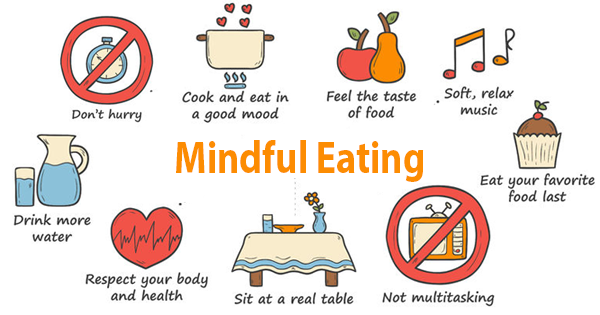Weight Loss Without Dieting: For decades, calorie counting has dominated the world of weight loss, guiding individuals to burn more calories than they consume in order to shed pounds. While this approach offers structure, it often becomes tedious, restrictive, and unsustainable over time. Beyond numbers, traditional dieting overlooks one critical factor: the complex relationship people have with food. Emotional eating, stress-driven snacking, and mindless habits can all sabotage efforts to maintain a healthy weight, even when calories are meticulously tracked.
Recent insights from wellness and yoga experts highlight an alternative approach—mindful eating. This practice encourages individuals to eat with full awareness and intention, fostering a conscious connection with every bite. By tuning into hunger cues, emotional triggers, and the sensory experience of eating, mindful eating addresses both physical and psychological aspects of nutrition. According to Dr. Narendra K Shetty, Chief Wellness Officer at Kshemavana Naturopathy and Yoga Center, mindful eating not only supports weight loss but also enhances digestion, mental wellbeing, and long-term health.
Unlike traditional dieting, mindful eating promotes sustainable habits rather than temporary restrictions. It encourages people to enjoy food without guilt, understand the body’s needs, and respond appropriately to hunger and satiety signals. By prioritizing awareness over numbers, this practice can transform weight management into a holistic, life-long strategy rather than a short-term, stress-inducing challenge.
What Is Mindful Eating?
Mindful eating is the practice of eating with complete awareness of the present moment. It involves paying attention to the taste, texture, smell, and appearance of food, as well as recognizing internal signals like hunger and fullness.
Key principles of mindful eating include:
- Eating Slowly: Taking time with each bite improves digestion and allows the body to register fullness.
- Tuning into Hunger and Satiety Cues: Eating when truly hungry and stopping when satisfied, rather than eating out of habit or emotion.
- Savoring Food: Focusing on taste, texture, and enjoyment enhances satisfaction and reduces overeating.
- Reducing Distractions: Avoiding screens or multitasking during meals helps individuals stay connected to the eating experience.
Dr. Shetty emphasizes that mindful eating goes beyond calorie management; it addresses emotional and psychological connections to food, helping people develop a healthier and more balanced approach to eating.
Read about: Yoga Isnt as Heart-Healthy as You Think, New Study Reveals
Benefits of Mindful Eating for Weight Loss
1. Promotes Sustainable Weight Management
Mindful eating reduces the tendency to overeat by helping individuals recognize true hunger and fullness. Unlike restrictive diets, it supports gradual, long-term weight loss without the stress of counting calories.
2. Improves Digestion and Gut Health
Eating slowly and chewing food thoroughly enhances digestive efficiency, nutrient absorption, and overall gut health. Mindfulness reduces stress-related digestive issues, such as bloating and indigestion.
3. Enhances Mental Wellbeing
By fostering a positive relationship with food, mindful eating can reduce anxiety, guilt, and stress associated with eating. It encourages enjoyment of meals, improving overall emotional health.
4. Reduces Emotional and Mindless Eating
Many individuals eat in response to emotions, boredom, or routine habits. Mindful eating encourages awareness of triggers, helping individuals make intentional choices rather than automatic ones.

How to Practice Mindful Eating
- Start Small: Begin with one meal per day to focus entirely on the eating experience.
- Eliminate Distractions: Turn off screens and avoid multitasking to connect fully with your food.
- Engage Your Senses: Notice the color, aroma, taste, and texture of each bite.
- Listen to Your Body: Pause to check hunger and fullness levels throughout the meal.
- Reflect After Eating: Consider how satisfied and nourished you feel, rather than judging food as “good” or “bad.”
Conclusion
Mindful eating offers a holistic approach to weight management that transcends the limitations of traditional dieting. By focusing on awareness, presence, and emotional connection with food, individuals can achieve sustainable weight loss while improving digestion, mental wellbeing, and overall health.
Unlike calorie counting, which often leads to stress and unsustainable habits, mindful eating empowers people to understand their body’s needs and respond with intention. This practice fosters a healthier, more balanced relationship with food, turning each meal into an opportunity for nourishment rather than restriction.
As Dr. Narendra K Shetty highlights, mindful eating encourages eating when hungry, stopping when full, and savoring each bite. By integrating this practice into daily life, individuals can cultivate lasting habits that support long-term health and wellbeing.
Ultimately, mindful eating is not just a tool for weight loss—it is a pathway to enhanced awareness, emotional balance, and a fulfilling, sustainable approach to nutrition.
Also read: Suzuki Gixxer SF and Gixxer 155: New Colours, Festive Offers, and Enhanced Benefits
FAQs of Weight Loss Without Dieting
1. What is mindful eating and how does it differ from traditional dieting?
Mindful eating is the practice of eating with full awareness of hunger, satiety, and the sensory experience of food. Unlike traditional dieting, which focuses on calorie counting and restrictions, mindful eating emphasizes intention, enjoyment, and a healthy emotional relationship with food, promoting long-term sustainable weight management.
2. Can mindful eating really help with weight loss?
Yes. By tuning into hunger and fullness cues and reducing mindless or emotional eating, mindful eating naturally helps control portion sizes and prevents overeating. This gradual, awareness-based approach supports sustainable weight loss without the stress of counting calories.
3. How do I start practicing mindful eating?
Start with one meal per day, eat without distractions, engage all senses, pause to check hunger and fullness, and reflect on how satisfied you feel after eating. Gradually, this practice can be incorporated into all meals for maximum benefit.
4. Does mindful eating improve digestion?
Yes. Eating slowly, chewing thoroughly, and being present during meals enhances digestion, nutrient absorption, and gut health. Mindfulness also reduces stress-related digestive problems such as bloating and indigestion.
5. Is mindful eating suitable for everyone?
Absolutely. Mindful eating can be adapted for all ages and lifestyles. It is particularly helpful for individuals who struggle with emotional or mindless eating, those seeking sustainable weight loss, and anyone aiming to improve their relationship with food.

I am the founder and writer of Healthwali.com. Here I personally publish every update, Fitness and Yoga guide , read more for you – that too in easy language.










